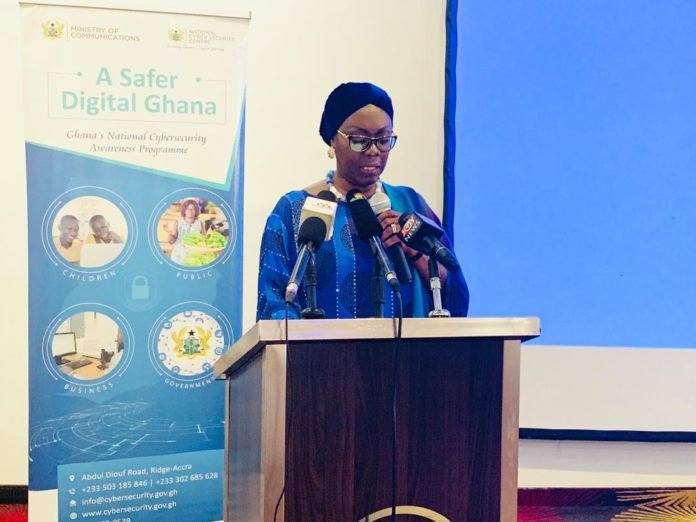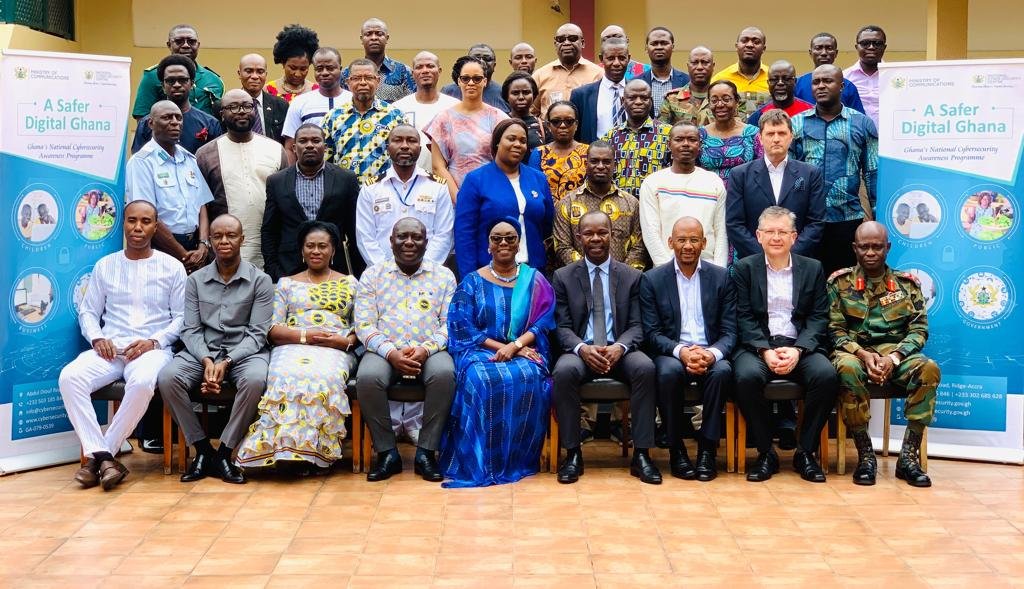
Communications Minister, Ursula Owusu Ekuful, has said Ghana’s continuous efforts to digitize calls for “a concerted effort to protect our digital infrastructure to avoid malicious infiltration.”
Speaking at a one-day workshop on the draft cybersecurity bill for the country’s heads of security agencies in Accra, Mrs Owusu Ekuful said any form of cyberattack on Ghana’s digital infrastructure would compromise “our security and sovereignty” as a state, hence the need for resolute and comprehensive legal framework, systems and processes to make our digital experience secure.
“The security challenges of digitisation are obvious. Many of our citizens have experienced a number of cybersecurity incidents including online impersonation and identity theft, social media scams and other cybersecurity-related breaches.
“The anonymity which facilitates cybercrime and the ease with which they are committed enhances its danger. A single cybersecurity incident can have global reach and devastating effects on governments, businesses and individuals,” she added.

The Cybersecurity bill
Over the years, scattered provisions in existing legislation such as the Electronic Transactions Act, 2008 (Act 772) and the Data Protection Act, 2012 (Act 843) have attempted to address cybercrime.
While the Electronic Transactions Act criminalises specific cyber offences, the Data Protection Act provides the principles and the procedures for lawful processing of personal data. What is lacking now is comprehensive cybersecurity legislation. The introduction of this Bill seeks to address this deficiency.
“The crux of the Cybersecurity Bill is to secure our digital ecosystem and establish the Cyber Security Authority (CSA), provide the legal framework for the protection of Critical National Information Infrastructure (CNII), establish the Cybersecurity Fund, regulate the cybersecurity ecosystem, including cybersecurity incident reporting, license cybersecurity service providers and provide for the lawful interception of both traffic and contents data for the purposes of evidence gathering, digital forensic law enforcement and intelligence,” said Mrs Owusu Ekuful during her address.
She said the Bill also makes specific provision for child online safety issues in this age of sextortion and blackmailing involving obscene contents, some of which are related to children. “Most importantly, the Bill is being introduced to address specific legal gaps with respect to Ghana’s mandate under the Budapest and the Malabo Conventions both of which, Ghana is a signatory to,” she said.
The workshop
In his address, the National Cybersecurity Advisor, Dr Albert Antwi-Boasiako emphasised on leadership as a key determinant of change even in the area of our developmental responses to address the menace of cyber criminality.
He said the past two years had provided ample evidence of how the Communications Minister’s leadership on cybersecurity in the country led to significant changes with respect to “our modest gains to address this global problem of which Ghana is a key stakeholder”
“Heads and representatives of Agencies present, your commitment and collaboration has been instrumental in achieving these global recognitions and I wish to further encourage you to work together especially through the Technical Working Group to further develop effective responses to achieve a national cyber resilience,” he said.
Source: Ghana/Starrfm.com.gh/103.5FM




